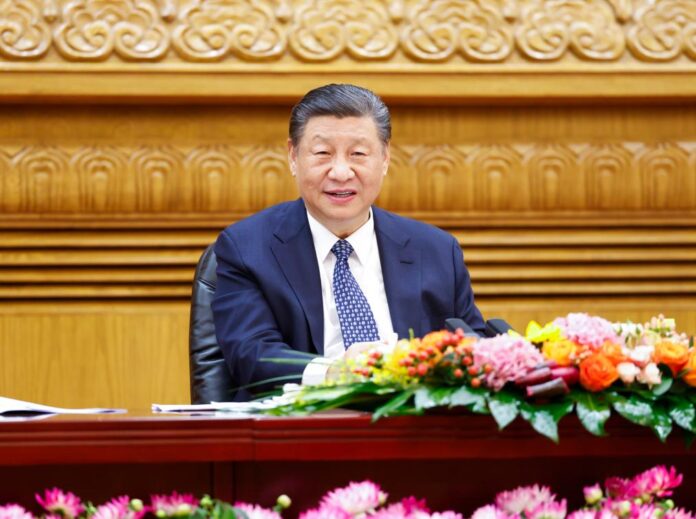Sadaf Sajjad
In a significant address at the recent Shanghai Cooperation Organization (SCO) summit, Chinese President Xi Jinping presented a comprehensive five-point proposal aimed at strengthening the organization’s role in fostering regional cooperation and development. The proposals, which touch on key areas of mutual concern for SCO member states, reflect China’s ambition to play a leading role in shaping the future of this influential Eurasian bloc.
President Xi’s first two proposals focused on creating “a common home of solidarity and mutual trust” and “a common home of peace and tranquility.” These points underscore the importance of unity and security in a region that has faced numerous challenges, from territorial disputes to terrorism. Notably, he emphasized that “real security is premised on the security of all countries,” a statement that appears to advocate for a collective approach to regional stability, potentially in contrast to unilateral or alliance-based security arrangements.
The third proposal, centering on building “a common home of prosperity and development,” outlined specific initiatives through which China aims to bolster regional cooperation. These include the establishment of demonstration bases for agricultural technology exchange, local economic and trade cooperation, and environmental innovation. In a move that highlights China’s technological ambitions, President Xi also invited SCO members to utilize the Beidou Satellite Navigation System and participate in the International Lunar Research Station project. These offers seem designed to expand China’s technological influence while addressing practical development needs within the SCO region.
Recognizing the importance of people-to-people exchanges, the fourth proposal called for building “a common home of good-neighborliness and friendship.” The commitment to host 1,000 young people from SCO countries for exchange opportunities in China over the next five years suggests a long-term strategy to foster understanding and create networks among future leaders in the region.
The final proposal, advocating for “a common home of fairness and justice,” touched on broader geopolitical themes. President Xi’s call for “an equal and orderly multipolar world and a universally beneficial and inclusive economic globalization” can be interpreted as a veiled criticism of the current international order, which China and some SCO members view as dominated by Western powers. The suggestion that the SCO should contribute to “eliminating the deficits in peace, development, security and governance” positions the organization as a potential alternative or counterbalance to existing global institutions.
President Xi emphasized the SCO’s past successes and future potential, framing solidarity and cooperation as key to the organization’s ability to navigate global changes. As China prepares to assume the SCO presidency, his commitment to work with partners in the “spirit of solidarity and cooperation” signals an intent to further consolidate China’s leadership role within the bloc. However, the success of this vision will ultimately depend on how well it aligns with the individual interests of other SCO member states. The proposals reflect China’s broader foreign policy objectives, including the promotion of a multipolar world order and the expansion of its technological and economic influence.
The coming years will be crucial in determining whether the SCO, under China’s guidance, can evolve into a more influential player on the world stage. If successful, President Xi’s vision could reshape regional dynamics and potentially offer an alternative model of international cooperation. However, challenges remain, including managing diverse national interests within the bloc and navigating complex relationships with non-member countries.
As the SCO moves forward, the balance between cooperation and competition, both within the organization and with external powers, will be critical. The implementation of President Xi’s proposals and their impact on regional stability, economic growth, and global power dynamics will be a key area of focus for policymakers and analysts alike in the years to come.
Writer is working as a Research Intern at the Islamabad Institute of Conflict Resolution (IICR).




